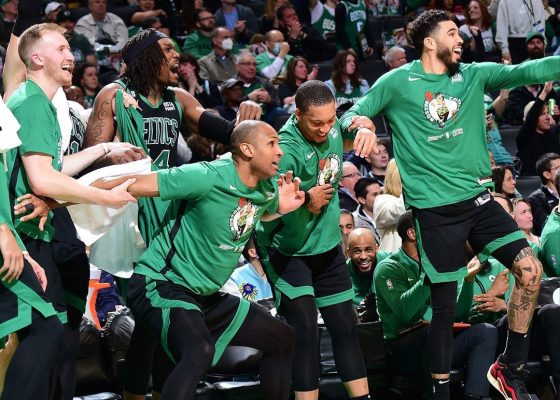I have this theory about mental horizons. It’s not quite a novel one, though. After all, the saying ‘can’t see the forest for the trees’ has been around a long time, and it’s seldom said in reference to literal forests or trees. But it’s a theory about what you see when you look as far as you can, mentally.
If you stand on a high bluff in the open plains, you can see to the far horizon on all sides. And you can see what is on the horizon—but only in the broadest sense. A moving dot on the road might be a car or a truck, a semi or a motorcycle, but it is definitely there, and it definitely has wheels.
Our minds work the same way.
It used to bother me that people on the coasts couldn’t tell the difference between South Dakota and North Dakota, and then friends of mine moved to “The Carolinas,” which is a nice way of saying that I have to stop and think for a minute before I remember which one of them they moved to. The Carolinas are on the far edge of my mental horizon, and it takes some effort to distinguish between them.
But these mental horizons exist outside of geography. We have mental horizons in everything else, too—the point where what we know bumps up against stuff that we have to look up.
Thus, early in the Finals, there was this narrative about Jayson Tatum ‘the disappointment,’ a guy whose on/off numbers were impeccable, whose assist totals were higher than his playoff averages which, in turn, were higher than his season averages, but whose scoring and shooting were both off.
People got so focused on this that their mental horizon couldn’t stretch out to 1981, where a young Larry Bird looked rather quotidian—at least in the points per game stat—in his first Finals appearance.
From the perspective of those critics of Tatum, Bird was just a speck on the horizon—recognizable, but not in any definite detail.
Then, in Game 3, the narrative turned. The Mavs came up short again as the Celtics did not cough up the lead in a close game, and now there was all this talk about how the Celtics shouldn’t have given up a 21-point 4th quarter lead. And again, mental horizons were in play. These people apparently could not see back to 1969, where Bill Russell’s Celtics gave up a 15-point fourth quarter lead in Game 7 and had to hold on by the skin of their teeth. And bear in mind that a 15-point lead in an era before the three-point line was about as daunting as a 21-point lead is today. The C’s, as a matter of fact, were outscored 12-5 over the final five minutes of that Game 7, a game that is an absolute keystone in Celtics lore.
Meanwhile, the outrageous take specialists of the media, having seen their predictions of Maverick victories go up in smoke, turned on the easiest target: Luka Doncic.
Now I, for one, think that Luka is just a titch overrated. I think his numbers are, in part, a product of a system that is basically geared to get him numbers because Dallas is appreciably short on talent.
However, ganging up on him only a week or so after proclaiming him the presumptive Finals MVP is yet another example of narrow mental horizons. Luka is not responsible for the failure of talking heads to appreciate just how good Boston is. He’s not to blame for all those people who were chirping about how the C’s weren’t “battle-tested” (whatever the heck that means). It’s not his fault that people who are allegedly paid to know things assumed that Boston would play Dallas just like the Wolves played the Mavs.
All that rage directed at Luka after Game 3? That was just transferred anger by people who couldn’t acknowledge that their own shortsightedness kept them from seeing the Celtics as they have been and truly are.
And now, we’re sitting in the aftermath of the team’s worst loss in Finals history, and where are we?
Are we looking out at the distance, trying to get some perspective?
Because from the top of those bluffs, when you can see so far, you can see “the big picture.”
So even if you can’t make out all the details of everything on the horizon, you can see the broad outlines of the world you’re in.
And what does that outline show?
What have the Celtics done during the playoffs? Have they just coasted to victory after victory? Nope. They’d lost twice before Friday, and those losses were wire-to-wire embarrassments. It’s almost as though Mazzulla, for as much as he hates to lose, would rather get blown out than lose any other way.
But when the dust settles, you have a team that has not lost four consecutive games since May of 2021, in a playoff series where no team has ever come back from a 0-3 deficit. The C’s have not lost two games in a row in the playoffs this year, so there is a pretty slim chance that this series even runs to six games.
And, again, looking at the big picture, Finals sweeps are very rare. There have been only nine total, and none since 2007.
Should Celtics fans be worried?
No. Not in the slightest.
The Mavs don’t have it in them to blow out the C’s four games in a row, and this team does not lose close games.
C’s doubters have been occupying an enormous expanse of intellectual territory going back eight years to the drafting of Jaylen Brown. They’ve been able to range freely and widely—criticizing the C’s free agent targets, the team’s draft picks, their trades, their coaches, their front office personnel. Always, even including one scary moment in 2022, they have been able, at the end of the season, to claim victory—no matter how good the Jays got, as long as the team didn’t win, it was always plausible to claim that Boston should have traded them, or should blow up the team, or any of a number of other scenarios. Horizons are vague, but they’re not hypothetical.
Their intellectual landscape was as broad as the old Roman Empire; you had the draft doubters up in Brittania, while critics of the coaches luxuriated under the Mediterranean sun of Alexandria. People with better trade ideas chilled out in Antioch, and in the center of it all were the good ol’ fashioned haters, who disapproved of everything from a perch on the Capitoline Hill in Rome.
Well, it’s 1453 now, and the Ottomans are at the gates of Constantinople. That’s the only land that these critics have left. They have been fiercely defending it with the same disregard for reality as those medieval Byzantines, and using Byzantine logic to support claims that the Mavericks had a better chance to win the series because they had the “two best players” (debatable), were “battle-tested” (laughable), and had faced tougher opponents (actually a point in Boston’s favor).
The C’s outstanding overall record, and their regular season record against the Western Conference were dismissed. The C’s ability to notch come-from-behind victories against the Pacers was waved aside because the Pacers weren’t worthy opponents, and in fact, those come-from-behind wins were basically losses because the C’s should have blown them out.
It was just one claim after another that reality isn’t real, that everything that you can see with your own eyes is just a trick of the light, and that the real world is something accessible only to people with special vision enabling them to see the ‘true nature’ of the Mavs as ‘serious’ and the Celtics as ‘unserious.’
It’s all come unraveled, and Friday’s debacle notwithstanding, it is unraveling still.
Climb that bluff and take a look at the world around you. It’s all Boston as far as the eye can see.






